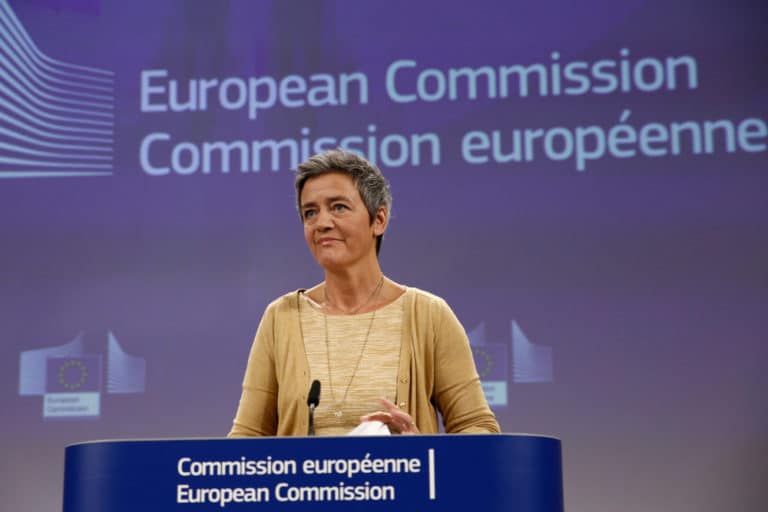The new legislation will have a sweeping impact on U.S. tech giants
EU lawmakers and countries could reach a deal on proposed tech rules by the end of June, according to Reuters. The new laws would force online platforms to better police the internet. The agreement looks likely, despite differences in the approaches between the European Council and the European Parliament. This is what the lawmaker steering the negotiations told Reuters.
The Digital Services Act (DSA) forces Amazon, Apple, Google and Facebook to “clean up” their platforms. IOt charges the tech giants with controlling and eliminating illegal content and behavior on their sites. If they fail to do so, they could face fines up to 6% of global turnover. The law has been proposed by EU antitrust chief Margrethe Vestager
The law is the first of its kind in the world. However, Vestager’s proposal needs to be agreed by EU countries and lawmakers before it can become law.
“I am optimistic we can make a deal before the end of June,” MEP Christel Schaldemose said in an interview.
Her comments came ahead of talks with French Digital Affairs Minister Cedric O and EU industry chief Thierry Breton.
Parliament wants wider scope, the Council wants greater power
Schaldemose said lawmakers want to expand the scope of what online platforms have to do. For example, they would ban dark patterns which mislead people into giving personal data to companies online. They would also continue to let companies be regulated where they are based.
“We go into the business models of platforms. The Council is not so willing to go that far,” she said, citing the divergence on dark patterns.
“The Council wants the ban only for online marketplaces. Parliament wants a ban on all platforms.”
Schaldemose said countries like Ireland, where Apple, Facebook and Google have their European headquarters, and Luxembourg, where Amazon is based, should continue to supervise those companies. This is in line with the “country of origin” principle.
“We stick closer to the country of origin principle than the Council,” she said, adding that the European Commission could also have a say, while EU countries want a bigger role for the EU executive.
EU lawmakers also want a ban on targeted advertising for minors and also that based on sensitive data like sexual or political orientation in order to comply with the bloc’s privacy rules, while EU countries collectively have a less strict position.
